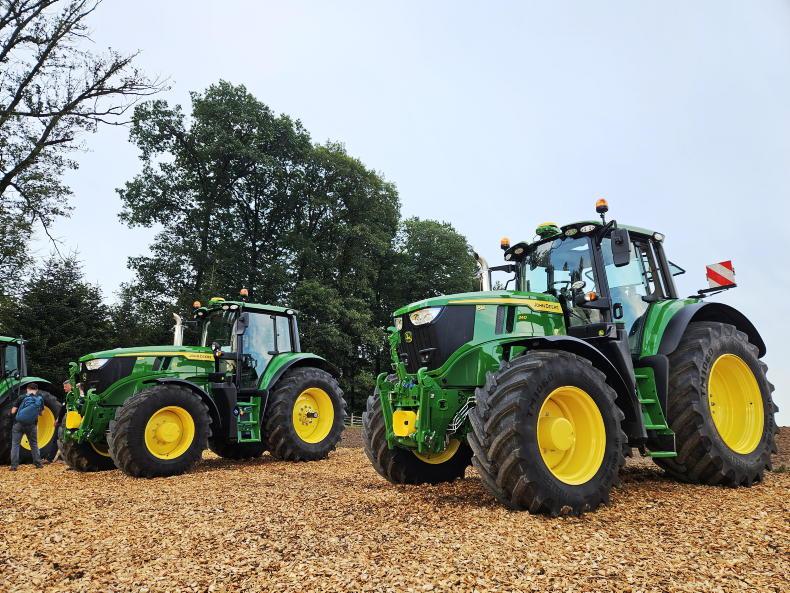In line with trends across Europe and further afield, new tractor registrations continue to decline in the Republic of Ireland, with 77 new tractors registered in the month of September.
This takes the total number of new tractor registrations for the nine months of 2024 to 1,715 units, according to the latest data from the Farm Tractor and Machinery Trade Association (FTMTA).
September 2024 figures are back 35 units, or 31% on the same month last year. In terms of the year-to-date data, the 2024 figure continues its downward trend with 253 less tractors retailed, which represents a year-on-year decline of 13%.
Power bands
The most popular power band was the 141hp to 160hp category, which for September 2024 accounted for 23.38% of all new tractor registrations for the month. Tractors in the power band lower than 100hp accounted for 12.99% of all new tractor registrations, slightly lower than for the same month in 2023.
The over-200hp category now accounts for 11.69% of all new tractors. The monthly average tractor horsepower figure for September 2024 was higher at 142hp and the largest tractor registered was rated at 415hp.
Cork continues to deliver the highest number of new tractor registrations at 221 units for the year to date, while Tipperary is in second place with 154 units, followed by Wexford at 101 units.
The FTMTA data shows that 206 imported used tractors were first-time registered in Ireland in September, 48 units more than in September 2023.
For the year to date, 2,112 used tractors were imported and registered for the first time, representing a 5.9% decline.
Northern Ireland
Agricultural Engineers Association (AEA) figures show that Northern Irish tractor registrations stand at 400 units for the year to date, down by a marginal 2.9% on the same period last year when the figure stood at 412 units. Northern Ireland currently accounts for 4.9% of all UK tractor registrations.
Across the UK, the September monthly total of 899 new tractors was down 19% on the level recorded in September 2023 and was 17% below the average for the same month over the previous five years. This was actually the lowest September figure since 2015.
That brought the total for the first three quarters of the year to 8,224 machines, 15% lower than in January to September 2023 and 13% behind the average for the opening nine months of the year.
